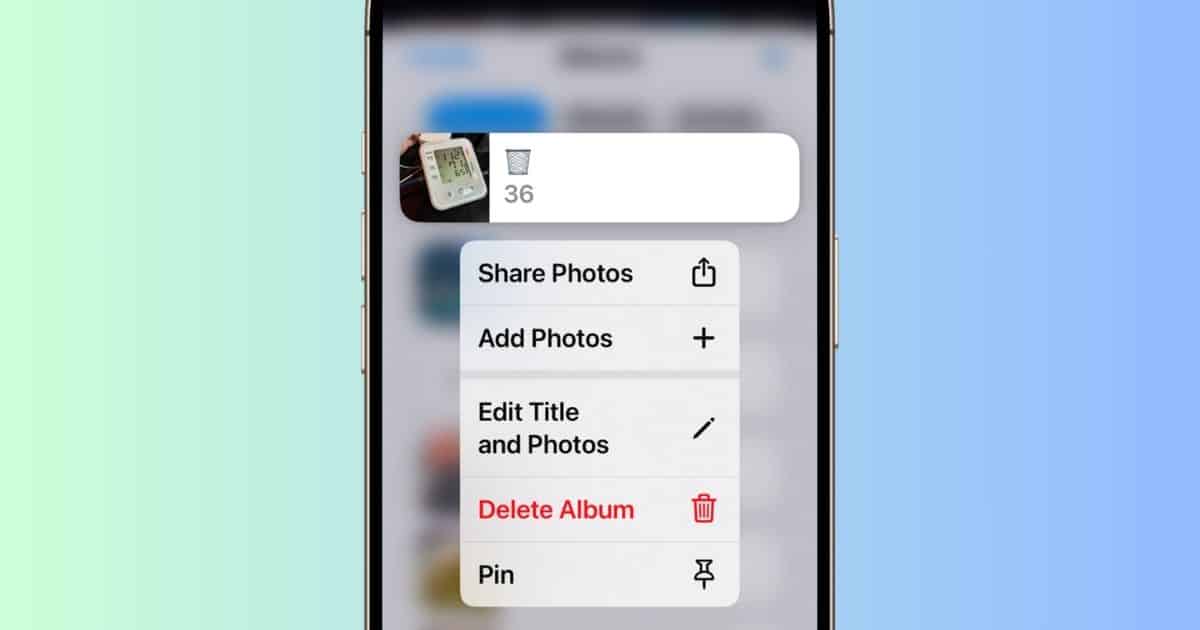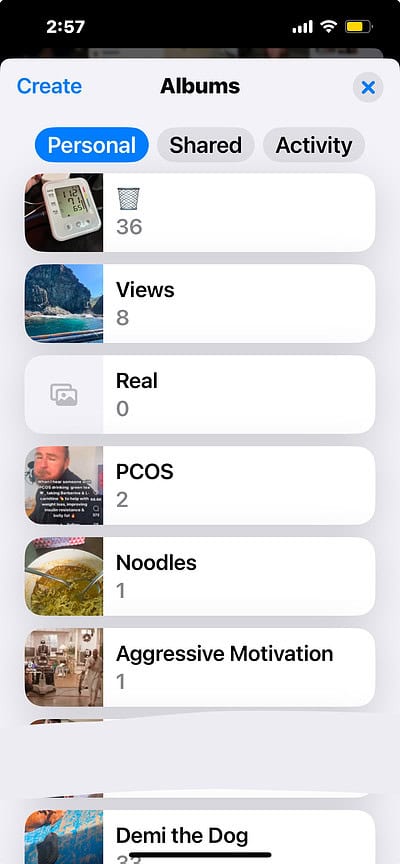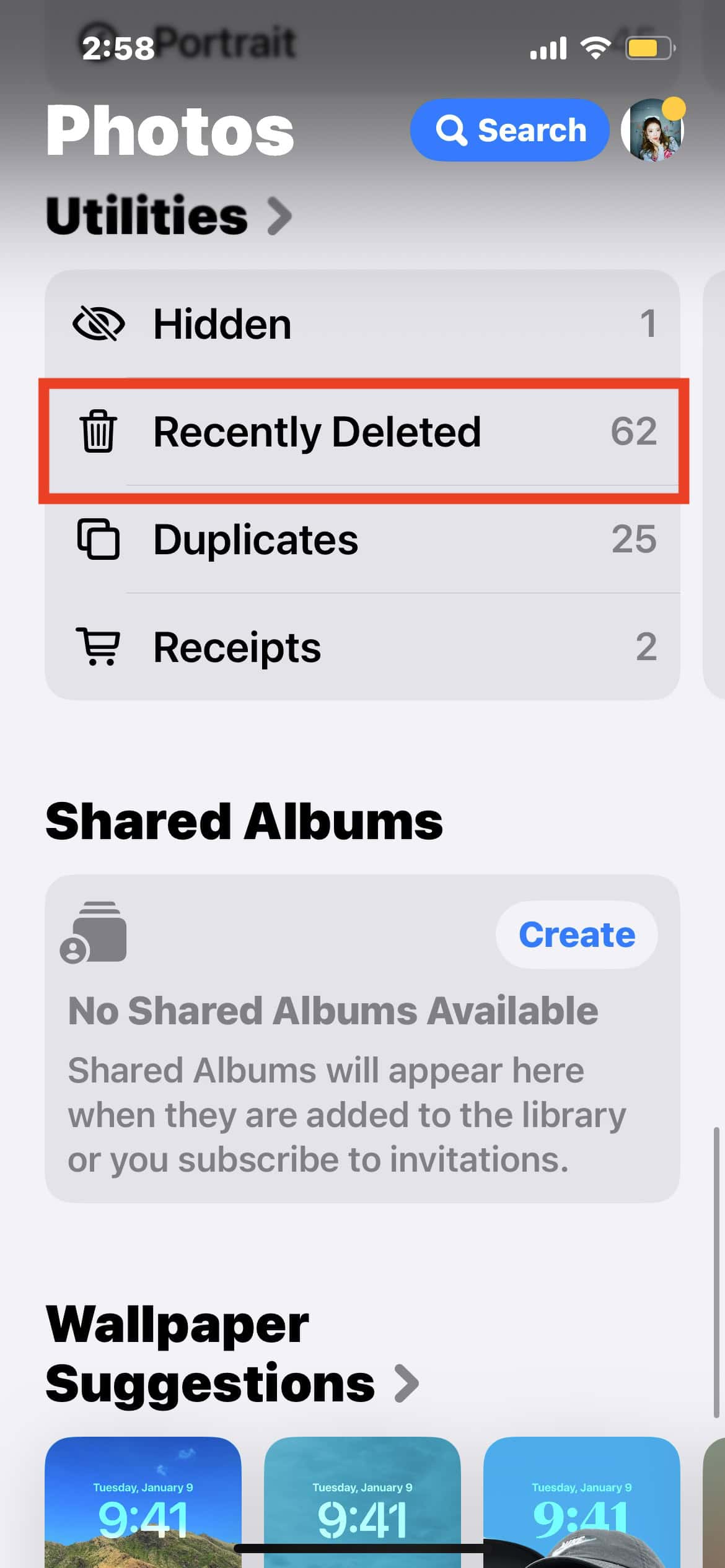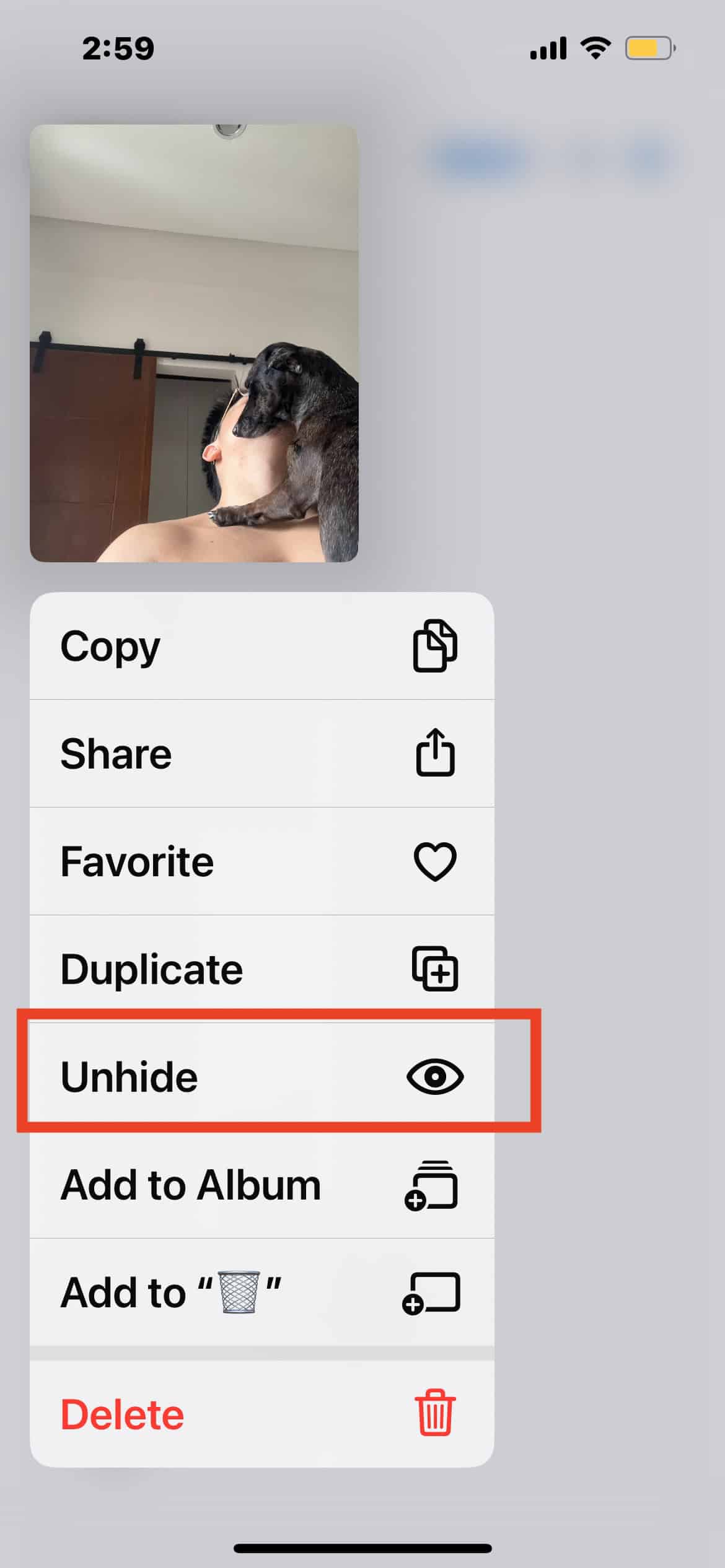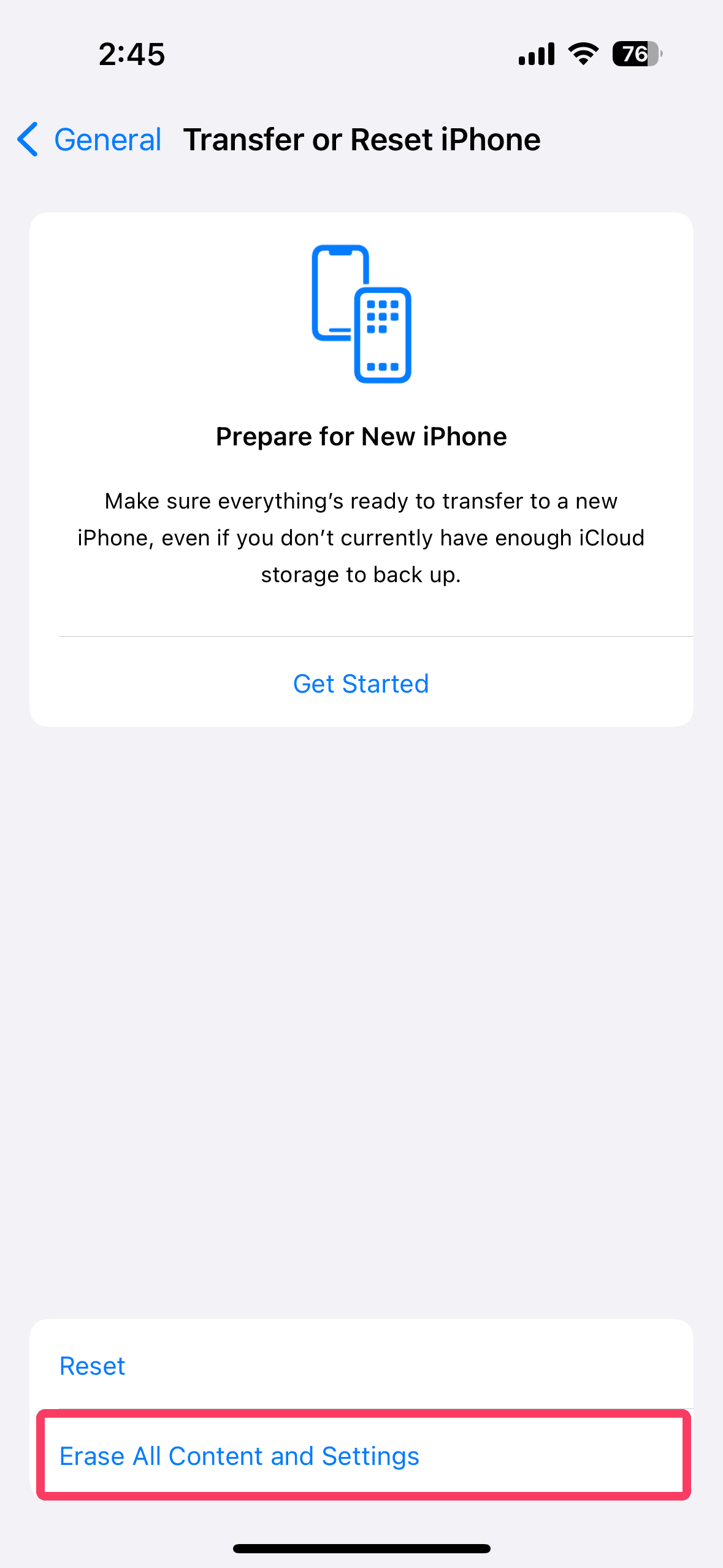Photos got a fresh look in iOS 18 with a sleeker, more streamlined layout that puts single images front and center. While it’s visually cleaner, the update made album organization more confusing. You may wonder why some albums are missing or moving around the app—some are hidden, while others have vanished completely.
Chances are, these assets just got swept up in the new layout. With a few tweaks, you can bring them back to the main view. Let’s dive in.
Why Are Some of My Albums Missing on My iPhone?
Some albums might seem to have vanished in the iOS 18.1 Photos app, but they likely just got buried in the new layout. iCloud hiccups can also prevent albums from syncing. They might move to the wrong location, like Recently Deleted, Hidden, or an unexpected folder in Files.
What To Do if Albums Are Missing or Moving in Photos App
1. Check the Albums Section
Time needed: 3 minutes
There’s a good chance your “missing” files aren’t really gone. Start by exploring the new UI—head to the redesigned Albums section and browse through the clips and images. The new layout can be a bit confusing, so here’s what to do:
- Open the Photos app and go to Albums—it’s under Recent Days.
- Tap the greater than symbol (>) and scroll through all your albums.
- Check Shared and Activity if some assets are missing from Personal.
 NOTE
NOTE
2. Open Recently Deleted
Check the Recently Deleted folder in the Utilities section. It stores deleted items for 30 days before permanently removing them from your local and iCloud storage systems. You should be able to bring back albums that got wiped during the update.
- Go to Photos and scroll down to the Utilities section.
- Tap Recently Deleted.
- Open the missing asset/s and select Recover to bring them back to the main library.
3. Check Your Hidden Photos
Check if iOS 18 moved some media assets to the Hidden folder. Photos and videos stored here won’t appear in your main library, so it’s easy to think they’re missing.
- Go to Photos and scroll down to the Utilities section.
- Tap Hidden and use Face ID to unlock it.
- Press and hold the missing video or image and select Unhide.
4. Sync Photos With iCloud
iCloud syncing can lag if you’re organizing albums on another device or dealing with spotty connectivity. To re-sync your library, manually enable iCloud Photos. It’ll update the album metadata across the entire ecosystem and resolve any inconsistencies during your last update.
- Go to Settings > [your Apple ID name] > iCloud.
- Tap See All under Saved to iCloud.
- Select iCloud Photos, toggle on Sync this iPhone, and tap Sync Now.
5. Use the AI-Driven Search Bar
 NOTE
NOTE
Apple Intelligence uses its proprietary LLM and NLP models to comb through your Photos app efficiently. You can describe moments just as you remember them. Let’s say you’re looking for a clip of your dog at the park. Simply type something like “[pet name] playing in green grass at [park location],” and AI will zero in on exactly what you mean.
- Open Photos.
- Tap Search at the top of the screen and describe the clip or picture you need.
6. Open Files
Open the Files app to check if some media assets got sent there during the syncing process. iOS update bugs occasionally cause images and videos to save as files, removing them from the main Photos library.
 NOTE
NOTE
7. Factory Reset iPhone
As a last resort, you can consider a factory reset to clear any hidden settings affecting the Photos app. Just note that this will erase everything on your device, so make sure you’ve backed up all your files beforehand. You won’t be able to recover them afterward.
- Go to Settings > General > Transfer or Reset iPhone.
- Tap Erase All Content and Settings.
- Select Continue to confirm the reset, and then grant the necessary permissions.
- Let your device restart.
If your albums or files are still missing, consider reaching out to Apple Support. They offer specialized resources on iCloud-related issues, and connecting with a certified technician can provide targeted guidance. That said, hardware repairs are rarely necessary for this issue—most resolutions will involve troubleshooting within the Photos app or iCloud settings.
